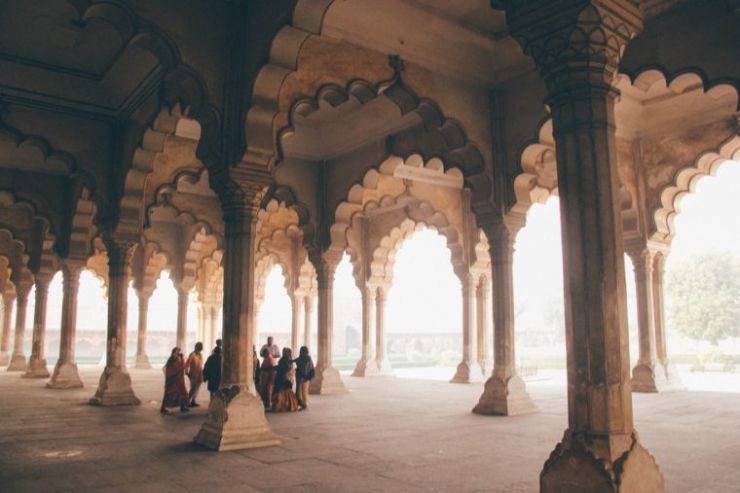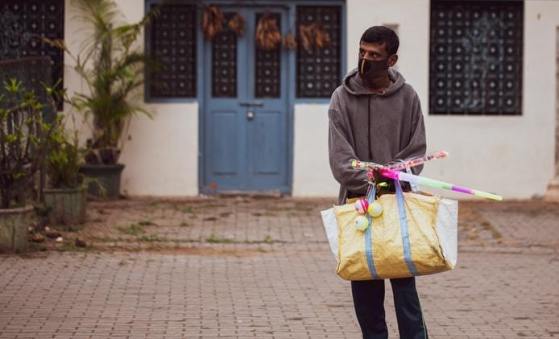
World leaders are finally paying more attention to religious freedom, violence against minorities by both state and non state actors and how the lack religious peace is a growing threat to peace and economic development.
This week, in Washington DC, delegates from dozens of nations, human rights advocates and cIvil society leaders from all faiths and no faiths are meeting at the State Department for a ministerial dedicated to addressing the global challenges against religious freedom. The ministerial, in its second year, has become one of the department's largest annual gatherings.
The UN also recently adopted an international day to acknowledge the threat of religious terrorism and its many victims. The International Day Commemorating the Victims of Acts of Violence Based on Religion or Belief — adopted by the General Assembly and proclaimed for August 22 — is a long overdue but welcome step for religious liberty.
And it's not just international bodies who are realising religious freedom is under serious threat. Nations such as Britain, the Netherlands and Poland are setting measures and developing statutory bodies to monitor religious violence and persecution.
The world is now coming to grips with the reality that seven in 10 people around the world live in societies with high or very high restrictions on and hostilities against religion. This includes restrictions on religion put in place by governments and communal hostilities against religion.
Treating religion as merely a backdrop to world events, let alone ignoring its fundamental role in informing social and cultural behavior, would be a grave mistake. When we fail to identify and root out religious terrorism, violence and hostility, minorities pay the price for it.
READ MORE: 'Iron curtain' of religious persecution must end, says US religious freedom rep
Over the past decade we have seen Christianity nearly erased from its place of birth by ISIS and other Islamic extremist groups. In Pakistan, the number of Christians has declined due to forced conversions. Thousands of Pakistani Christians have fled to Thailand, where they have languished as disenfranchised asylum seekers.
Despite being collectively the largest religious group in the world, Christians also are the most persecuted faith community according to Pew Research.
The truth is that no matter how large its global presence, wherever a religious group is a minority it will be at the mercy of the dominant community. This is why the Hindu community in Pakistan and Bangladesh is diminishing despite being next door to nearly 1 billion Hindus in India. It's also why over the past three decades, the Kashmiri Pandits — once numbering in the hundreds of thousands — have been reduced to a few thousand in the Kashmir Valley by Islamist militants.
In India we have observed this phenomenon play out as Muslims are beaten to death and even thrown out of moving trains for not chanting "Jai Shri Ram," a Hindu mantra that's been taken up by far-right extremists. Ironically, it's believed Mahatma Gandhi muttered these same words as he lay on his deathbed after being shot by a religious extremist.
Christians, also a minority in India, are targeted at the local state level by the age-old propaganda of the colonial times, that Christians are involved in forced and fraudulent conversions. Beyond being an anachronistic and groundless accusation, the idea that Christians would somehow manage to do such a thing under a Hindu-majority government — which is the case since independence no matter which party is in power — is borderline absurd. In a nation filled with diversity, our religious identity must not trump our national identity as full-blooded Indians.
Religious freedom, the right to practice and propagate one's faith, has to be defended by everyone, including members of different faith communities. Religious extremism equally has to be fought by everyone, especially when its target is minorities within a religion — such as the Ahmadis in Pakistan who are not allowed to call themselves Muslims — or those who are denouncing it.
READ MORE: Foreign Secretary 'deeply disturbed' by number of Christians being persecuted for their faith
The mass shooting in two Mosques in Christchurch, New Zealand, by a white supremacist is a pointed reminder that religious terrorism does not belong to any particular culture. It is widespread, like a cancer across regions and religions.
The UN day for victims of religious violence and the State Department's annual ministerial must confront the global threat against religious freedom. At this critical moment in global history, both international bodies have the opportunity to take concrete steps to guarantee the right of every religion to propagate and practise their faith.
My bigger concern is that religious hate and violence in India, which has spiked during the last decade, will sidetrack Prime Minister Modi's commendable vision to turn India into a 5-trillion-dollar economy by 2025. Exhaustive research has shown that conditions of religious freedom and peace are prerequisites for major economic progress. We all want India to become a major economic world power and must not allow religious strife, hatred and violence to tear our economic enterprise apart.
Further, as someone who holds on to my Christian faith, my aspiration is that these efforts will help ensure freedom of choice for believers and unbelievers, and create a world where I can see my co-religionists practise and propagate their faiths — even as I am allowed to practise and propagate my faith in the context of peace and harmony.
Most Rev. Joseph D'Souza is a Christian theologian, author and human and civil rights activist. He is the founder of Dignity Freedom Network, an organization that advocates for and delivers humanitarian aid to the marginalized and outcastes of South Asia. He is archbishop of the Anglican Good Shepherd Church of India and serves as the president of the All India Christian Council.




